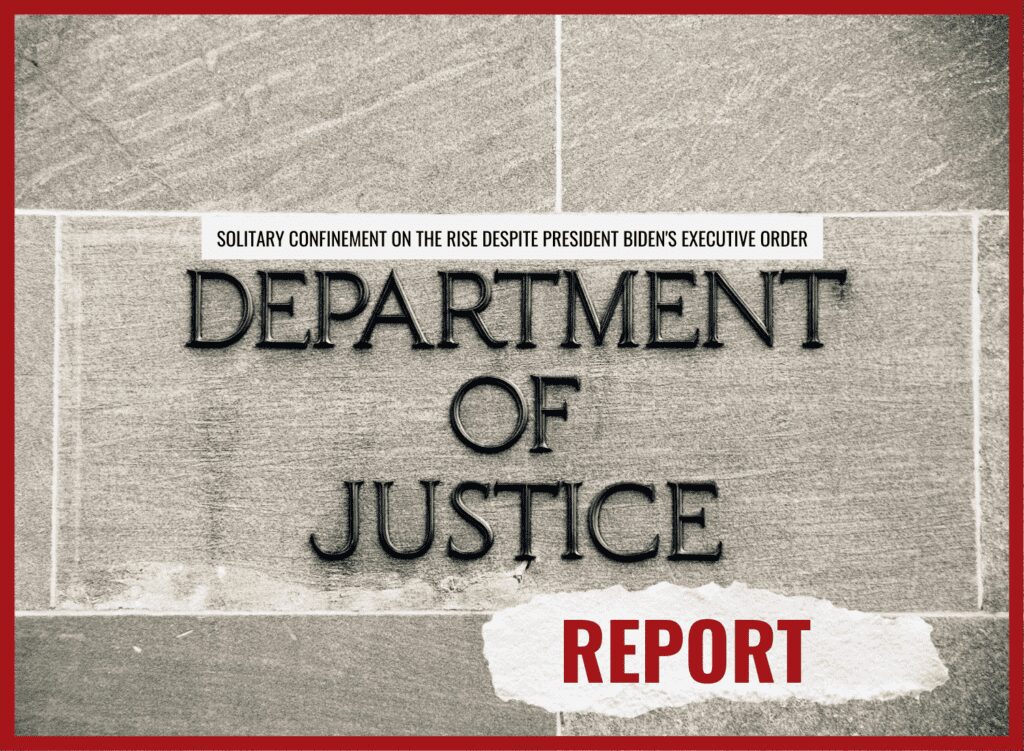With Over 11,300 People Still in Solitary in Federal Prisons on a Given Day, National Experts Urge President Biden, the Bureau of Prisons, and the U.S. Congress to Act to Fulfill the President’s Pledge to End Solitary Confinement
WASHINGTON, D.C., February 3, 20223 – As the U.S. Department of Justice (DOJ) issued a report on solitary confinement required by President Biden’s May 25, 2022 Executive Order, data from the Bureau of Prisons reveals that the number of people locked in solitary confinement in federal prisons increased nearly 11% from April 2021 to the release of the report and nearly 7% since the time of the EO to the release of the report, and that people continue to be locked in solitary confinement for months and years. While DOJ’s report states additional future steps will aim to reduce the use of solitary – including potential regulatory changes, a study by an outside entity, and an internal BOP task force – measures taken to date have not reduced the use of solitary and the BOP continues to lock over 11,300 people in solitary confinement on a given day, at rates above the national average.
In light of the President’s pledge to end solitary confinement, with new polling data showing widespread bipartisan support for ending solitary confinement, and a new report documenting the best policy components from legislation passed or introduced across the country, national experts are urging the President, the BOP and DOJ, and the U.S. Congress to finally take bold action to end this torturous practice in line with the Federal Anti-Solitary Taskforce’s Blueprint for Ending Solitary Confinement. Also, engagement with outside entities noted in the DOJ report to study and provide recommendations should include engagement with people who have lived through solitary and people who have had family members in solitary, and are leading campaigns to reduce and end solitary. Further, the DOJ report’s citation of reductions in placing only one person in a cell as a positive development is of deep concern, particularly in light of recent and longstanding reporting on the torturous and deadly use of double-celled solitary confinement in federal prisons.
In light of the growing awareness that solitary confinement causes severe damage, increases the risk of death, and worsens safety for everyone, jurisdictions across the country have been introducing legislation to ban or restrict the practice. Among the significant trends found in the Banning Torture report include initiatives to: (1) end solitary confinement for young people; (2) end solitary confinement for subgroups including people who are pregnant, living with physical and mental disabilities, and those with medical conditions; (3) prohibit solitary confinement beyond 15 consecutive days in accordance with the United Nations Nelson Mandela Rules; (4) create independent oversight mechanisms to promote effective policy implementation; and (5) fully end solitary confinement for all people.
Jessica Sandoval, Director of the Unlock the Box Campaign, said: “The result of the President directing DOJ to report on steps it has taken to reduce solitary confinement has so far simply maintained the status quo of federal prisons locking thousands of people in solitary confinement every day. The President should issue a new executive order that actually directs DOJ to end solitary confinement, the Bureau of Prisons must act swiftly to reduce and end solitary, and Congress should introduce and pass legislation to stop this torture and utilize proven alternative interventions involving full days of out-of-cell group programming and engagement.”
Johnny Perez, survivor of solitary confinement and Director of the U.S. Prisons Program at the National Religious Campaign Against Torture, said:“The DOJ report’s claim that past COVID restrictions on prison transfers were a likely cause for an increased use of solitary confinement raises substantial questions, such as whether such COVID mitigation measures are still in place now, why the use of solitary has increased since April 2021 and since May 2022, how since late December 2022 the number of people in SMUs decreased by 200 people while the number of people in SHU increased by 500 people, and why failed COVID policies that perpetuate solitary and harm families without protecting people from COVID continue to be used. Regardless, BOP has utilized solitary confinement at rates above the national average both before and after the onset of COVID, causing grave harm. Solitary confinement is tortuous, deadly, and counterproductive to any safety goals. New polling data shows there is overwhelming, bipartisan public support for ending the practice. The time for bold action by the federal government to end solitary confinement in all forms is now, and the National Religious Campaign Against Torture hopes the Biden-Harris administration and Congress will follow through on their promise to do so.”
Tammie Gregg, Director of the American Civil Liberties Union’s Stop Solitary Campaign, said: “Solitary confinement is a torturous practice that causes immense suffering and severe damage, while also worsening safety for everyone. It should have no place in our society and must be ended immediately. We are disappointed that the Department’s report published today fails to provide a specific proactive plan for how solitary confinement will be significantly limited and ended as the Administration pledged to do. The Blueprint for Ending Solitary Confinement provides a roadmap for how the President, Congress, and state and local lawmakers can and must end solitary confinement in a real and meaningful way while fostering engagement- and program-based interventions proven to be much more effective at improving safety.”
BACKGROUND:
The Bureau of Prisons is currently locking over 11,300 people in solitary confinement on a given day, when 10,208 people were locked in solitary in April 2021 and 10,607 people were locked in solitary on May 28, 2022.
On the Executive Order
President Biden and Vice President Harris pledged to end solitary confinement. President Biden’s May 25, 2022 Executive Order stated that it is the administration’s policy to ensure that people in federal custody must be “free from prolonged segregation”. The widely recognized definition of prolonged solitary confinement, including as defined in the Mandela Rules on the Treatment of Incarcerated People adopted by the United Nations with a supportive vote of the United States, is solitary confinement beyond 15 consecutive days. The President’s May 2022 EO also required that the Department of Justice issue a report within 180 days “detailing steps the DOJ has taken … to ensure that restrictive housing in Federal detention facilities is used rarely, applied fairly, and subject to reasonable constraints; to ensure that individuals in DOJ custody are housed in the least restrictive setting necessary for their safety and the safety of staff, other [people in prison] and detainees, and the public; to house [people in prison] as close to their families as practicable; and to ensure the DOJ’s full implementation, at a minimum, of the Prison Rape Elimination Act of 2003 (Public Law 108-79) and the recommendations of the DOJ’s January 2016 Report and Recommendations Concerning the Use of Restrictive Housing.”
Yet, the use of solitary in federal prisons has increased since that executive order. Moreover, thousands of people in Special Housing Units (SHU), one of the BOP’s forms of solitary, have been locked in solitary for over 90 consecutive days, including nearly 470 who have been locked in solitary consecutively for more than six months, and 57 consecutively for over a year. The BOP does not report the lengths of time that the 663 people in Special Management Units (SMU) or Administrative Maximum Facility (ADX), two of the other BOP’s forms of solitary where many people have spent long periods in solitary.
On Recent Nationwide Poll
New nationwide polling data released by Data for Progress shows widespread bipartisan support for various restrictions on solitary confinement, including banning solitary beyond four hours for purposes of emergency de-escalation – directly in line with the FAST Blueprint’s recommendations. Specifically, voters support this ban on solitary beyond four hours by a +32-point margin, with 78% of Democrats, 61% of Independents, and 51% of Republicans supporting it. Other restrictions on solitary also had widespread bipartisan support, including banning solitary entirely for people with mental health needs (78% support) and other particular groups, ending prolonged solitary for all people in line with international prohibitions on torture and respect for the inherent dignity of all human beings (71% support), ending solitary for currently routine reasons such as talking back to an officer (73% support) or raising complaints (64% support), implementing rehabilitative interventions focused on programs and counseling rather than punishment (65% support), and creating a new office to investigate corruption and mismanagement in U.S. prisons (86% support).
On Solitary Confinement and Alternative Forms of Separation
Solitary confinement is torture. It is deadly. It worsens safety for everyone. Solitary is predominantly inflicted on Black and Latinx people. Solitary damages and destroys people’s minds and bodies, has directly caused the deaths of far too many people, and increases violence and harm in jails and outside communities. Solitary confinement causes people to engage in self-mutilation. It causes heart disease. It causes anxiety, depression, and psychosis. It makes jails and outside communities less safe. Studies have indicated that people in solitary are seven to 12 times more likely to engage in self-harm, and five to six times more likely to die by suicide, than the rest of the prison or jail population – a population already at high risk of self-harm and death by suicide.
Even after release from jail or prison, a study of hundreds of thousands of people released from prison in North Carolina over a 15 year period found that people who had spent time in solitary were significantly more likely to die by suicide and other causes. Research shows that even only one or two days in solitary leads to significantly heightened risk of death by accident, suicide, violence, overdose, and other causes. On the day she died, Layleen Polanco was locked in solitary for only two to three hours. By causing people to deteriorate, solitary makes it more likely, not less, that people will engage in harmful acts, and people who have spent time in solitary are more likely to be rearrested after release.
Despite this well known harm and counterproductive nature of solitary, scores of thousands of people – disproportionately Black people, Latinx people, Native people, and other people of color – are locked in solitary confinement on a given day, and hundreds of thousands over the course of the year. People are locked in solitary for days, weeks, months, years, and decades. The more than 11,300 people locked in solitary in the federal BOP on a given day do not include people in other forms of federal custody, such as in immigration detention or in U.S. Marshalls Service jails, nor people in state and local prisons and jails.
While solitary causes devastating harm and makes jails and outside communities less safe, alternatives involving full days of out-of-cell programming and engagement are proven to better improve safety. The evidence is clear: what actually works to address violence is the exact opposite of solitary: pro-social program-based interventions like the CAPS program in NYC jails, the Merle Cooper Program in NYS, and the RSVP program in San Francisco jails.
For example, the RSVP program included people who had carried out acts of assault, sexual assault, other violent acts, and repeated “heinous” acts, and led to a precipitous drop in violence among participants to the point of having zero incidents over a one year period. Best practices in youth and mental health facilities limit isolation to minutes or hours at most.
There is currently legislation pending in New York City with veto-proof supermajority support that would – among other provisions – end all solitary confinement beyond four hours immediately following an incident for purposes of emergency de-escalation, and require that all people in the jails, including all people in any alternatives to solitary confinement, have access to at least 14 hours of out-of-cell time with access to out-of-cell group programming and activities. States like New York, Colorado, North Dakota, New Jersey, and Connecticut have all taken steps in recent years to significantly reduce the use of solitary confinement.
On New Unlock the Box Report
The national Unlock The Box campaign recently released Banning Torture: Legislative Trends and Policy Solutions for Restricting and Ending Solitary Confinement throughout the United States, the first-ever comprehensive, nationwide analysis of legislation related to solitary confinement. In light of the growing awareness that solitary confinement causes severe damage, increases the risk of death, and worsens safety for everyone, jurisdictions across the country have been introducing legislation to ban or restrict the practice. Among the significant trends found in the Banning Torture report include initiatives to: (1) end solitary confinement for young people; (2) end solitary confinement for subgroups including people who are pregnant, living with physical and mental disabilities, and those with medical conditions; (3) prohibit solitary confinement beyond 15 consecutive days in accordance with the United Nations Nelson Mandela Rules; (4) create independent oversight mechanisms to promote effective policy implementation; and (5) fully end solitary confinement for all people.




